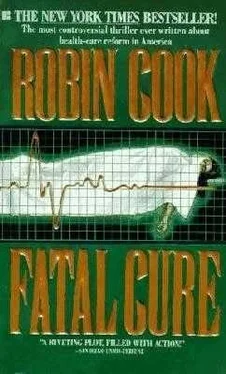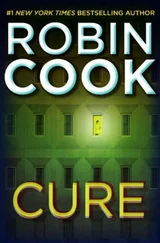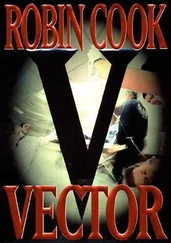"Coffee or tea?" Angela asked when Calhoun came into the kitchen.
"Whatever you're having," Calhoun said.
Angela got out the teapot and busied herself getting the tea and the honey.
"You're off kinda early," Calhoun said.
Having reined in her emotions ever since she'd fled Wadley's office, Angela's response to Calhoun's innocent comment was overwhelming. She covered her face and sobbed. At a loss for what he had said or what to do, Calhoun stood helpless.
When Angela's tears reduced to intermittent choking sobs, Calhoun apologized. "I'm sorry," he said. "I don't know what I did, but I'm sorry."
Angela stepped over to him and put her arms around him and her head on his woolly shoulder. He hugged her back. When she'd finally stopped crying he told her that she better tell him what happened.
"I think I'll have some wine instead of tea," Angela said.
"I'll have a beer," Calhoun said.
Sitting at the kitchen table Angela told Calhoun about getting fired. She explained how dire the consequences could be for her family.
Calhoun turned out to be a good listener, and he had the intuitive sense of what to say. He made Angela feel better. They even discussed her concerns about Nikki.
When Angela had talked herself out, Calhoun told her that he'd made some progress in the investigation.
"Maybe you're not interested anymore," Calhoun said.
"I'm still interested," Angela assured him. She dried her eyes with a dish towel. "Tell me."
"First of all, I discovered how the eight patients whose admission summaries Hodges was carrying around are related," he said. "All of them were former patients of Hodges' who had been shifted to CMV and had subsequently died in the months preceding Hodges' murder. Apparently each death came as a surprise for Hodges. That's why he was so furious."
"Did he blame the hospital or CMV?" Angela asked.
"Good question," Calhoun said. "As far as I could find out from his secretary he blamed both, but his main beef was with the hospital. It makes sense: he still thought of the hospital as his baby. So he was more disappointed with its perceived faults."
"Does this help us find out who killed him?" Angela asked.
"Probably not," Calhoun admitted. "But it's another piece to the puzzle. I also discovered another one: Hodges believed he knew the identity of the parking lot rapist. What's more, he thought the perp was connected to the hospital."
"I see where you are going," Angela said. "If the rapist knew Hodges suspected him, then he might have killed Hodges. In other words, the rapist and Hodges' murderer could be the same person."
"Exactly," Calhoun said. "The same person who tried to kill you the other night."
Angela shuddered. "Don't remind me," she said. Then she added: "I learned something specific about this person today, something that could make finding him a bit easier: he has a tattoo."
"How do you know that?" Calhoun asked.
Angela explained why she had gone to Burlington. She told Calhoun that Walter Dunsmore was absolutely convinced that Hodges had scraped off part of his killer's tattoo.
"Hell's bells," Calhoun said. "I love it."
When yet another nurse from the second floor called and asked to be seen for the flu, David was eager to see her. When she arrived, she was surprised that she didn't have to describe her symptoms; David described them for her. They were the same as his, only more pronounced. Her gastrointestinal problems had not responded well to the usual medications. Her temperature was one hundred and one.
"Have you had increased salivation?" David asked.
"I have," the nurse said, "and I've never had anything like it before."
"Nor have I," David said.
Seeing how uncomfortable this nurse was, David was thankful his own symptoms had waned during the day. He sent the nurse home for bed rest and told her to drink plenty of fluids and take whatever antipyretic medication she preferred.
After the last office patient had been seen, David started off to the hospital to see his patients. He'd been back and forth all day, checking on both Nikki and Sandra, so he expected no surprises.
When he entered the ICU, Nikki saw him immediately and beamed. She was doing remarkably well. She'd responded to the IV antibiotics and ministrations of the respiratory therapist. She hadn't even minded the hustle and bustle of the ICU. Still David was happy to learn that she was scheduled to be transferred out of the unit the following morning.
Sandra's condition was just the opposite, following a relentless downhill course. She'd never awakened from her coma. The consults had been no help. Hasselbaum said she didn't have an infectious disease. The oncologist merely shrugged and said there was nothing he could do. He insisted she'd had a good result from the treatment of her melanoma. It had been six years since the primary lesion on her thigh had been diagnosed, then removed along with a few malignant lymph nodes.
David sat at the desk in the ICU and leafed through Sandra's chart. The MRI of her skull had been normal: no tumor and certainly no brain abscess. David looked at the laboratory tests he'd ordered. Some were not back yet and wouldn't be for days. He'd ordered all body fluids to be cultured despite the infectious disease consult's findings. David had also ordered sophisticated searches of these same body fluids for viral remnants using state-of-the-art biotechnological techniques.
David had no idea what to do. The only possible alternative was to try to get Sandra transferred to one of the big teaching hospitals in Boston. But he knew CMV would take a dim view of such a proposition because of the expense, and David could not do it on his own.
While David was agonizing over Sandra, Charles Kelley came into the unit and approached the desk. His visit took David by surprise; the medical bureaucrats usually stayed clear of places like the ICU where they'd be forced to confront the critically ill. They much preferred to sit in their tidy offices and think of patients as abstractions.
"I hope I'm not disturbing you," Kelley said. His slick smile had returned.
"Lately you've disturbed me every time I've seen you," David said.
"Sorry," Kelley said condescendingly. "But I have a bit of news. As of this moment, your services here are no longer needed."
"So you think you can take Sandra Hascher away from me?" he said.
"Oh, yes," Kelley said with satisfaction. His smile broadened. "And all the other patients as well. You are fired. You're no longer employed by CMV."
David's mouth fell open. He was aghast. With bewilderment he watched as Kelley gave him a wave as if he were waving to a child, then turned around and left the unit. David leaped up from his chair and stumbled after Kelley.
"What about all the patients I'm scheduled to see?" David called out.
Kelley was already on his way down the hall. "They're CMV's concern, not yours," he answered without looking back.
"Is this decision final?" David called. "Or is it temporary, pending a hearing?"
"It's final, my friend." With that, he was gone.
David was in a daze. He couldn't believe he'd been fired. He stumbled into the patient lounge and collapsed into the same chair that he'd pushed Kelley into that morning.
David shook his head in disbelief. His first real job had only lasted four months. He began to consider the awful ramifications his firing would have on his family, and he began to tremble. He wondered how he would tell Angela. It was horribly ironic that only the night before he'd warned her about putting her job in jeopardy. Now here he was the one to get fired.
From where he was sitting, David suddenly spotted Angela entering the ICU. For a moment, David didn't move. He was afraid to face her but he knew he had to. He got up from the chair and followed Angela into the unit. She was standing alongside Nikki's bed. David slipped in along the opposite side.
Читать дальше












